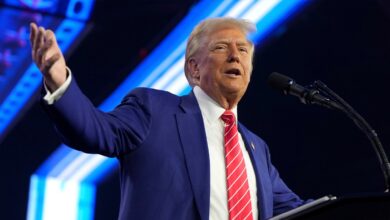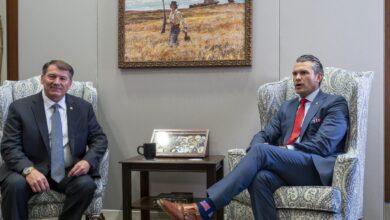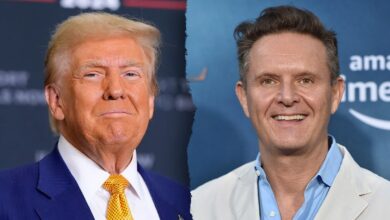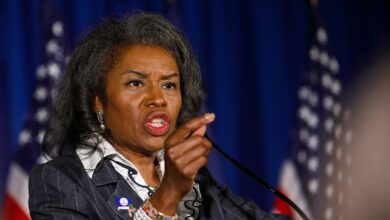Biden and Xi’s ‘hard-hitting’ talks culminate in military, fentanyl deals
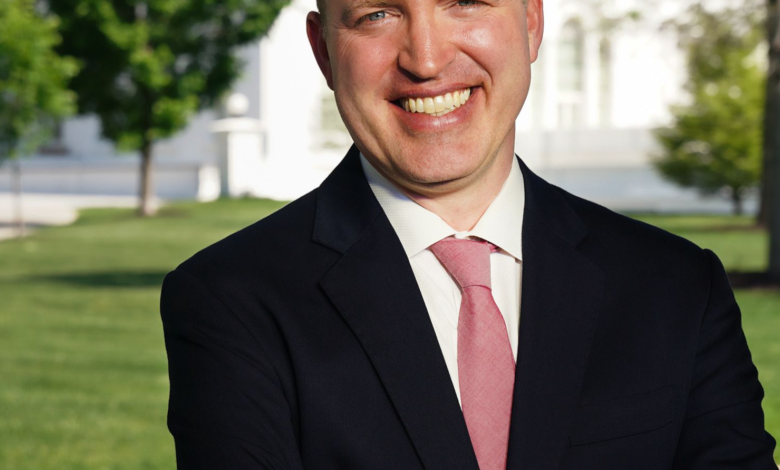
WOODSIDE, California, Nov 15 (Reuters) – U.S. President Joe Biden and Chinese leader Xi Jinping agreed on Wednesday to open a presidential hotline, resume military-to-military communications and work to curb fentanyl production, showing tangible progress in their first face face-to-face conversations in a year.
Biden and Xi met for about four hours outside San Francisco to discuss issues that have strained relations between the United States and China. Latent differences remain, particularly with regard to Taiwan.
In a significant development, the two governments plan to resume military contacts that China broke off after then-House Speaker Nancy Pelosi visited Taiwan in August 2022.
“We are back to direct, open, clear and direct communication,” Biden said.
Additionally, Biden said he and Xi agreed to high-level communications. “He and I agreed that each of us can take the phone call directly and we will be heard immediately.”
But in a comment likely to irritate the Chinese, Biden later told reporters that he had not changed his view that Xi is a dictator.
“Well, look, he is. I mean, he’s a dictator in the sense that he’s a guy who runs a country that’s communist,” Biden said.
Xi told Biden that the Communist Party’s negative views in the United States were unfair, a U.S. official told reporters after the meeting.
Biden and Xi entered the talks seeking to smooth over a rocky period in relations that worsened after a suspected Chinese surveillance balloon transited the United States and was shot down by a U.S. fighter jet in February.
The White House said Biden raised areas of concern to Washington, including detained US citizens, human rights in Xinjiang, Tibet and Hong Kong and Beijing’s aggressive activities in the South China Sea.
“We just talk, we’re frank with each other so there are no misunderstandings,” Biden said.
MILITARY, TAIWAN
The US and Chinese militaries have been on the brink of a series of acrimonious exchanges over the past year. After a commitment to renew communications, US Defense Secretary Lloyd Austin will meet with his Chinese counterpart when that person is named, a senior US official said.
Biden and Xi agreed that China would curb the export of items related to the production of the opioid fentanyl, a leading cause of drug overdoses in the United States. “It’s going to save lives,” Biden said, adding that he appreciated Xi’s “commitment” on the issue.
Under the deal, China will directly go after specific chemical companies that make fentanyl precursors, a senior U.S. official told reporters. He promised to “trust but verify” Chinese actions on the drug.
The two leaders also agreed to bring together experts to discuss the risks of artificial intelligence.
A US official described an exchange over Taiwan, the democratic island that China claims as its territory. China’s preference is peaceful reunification with the Chinese-claimed island of Taiwan, Xi told Biden, the U.S. official said, but Xi went on to talk about the conditions under which force could be used.
[1/7]U.S. President Joe Biden walks with Chinese President Xi Jinping at the Filoli Estate on the sidelines of the Asia-Pacific Economic Cooperation (APEC) summit, in Woodside, California, U.S., November 15, 2023. REUTERS/ Kevin Lamarque Acquire license rights
Biden said he highlighted the need for peace and stability in the Taiwan Strait. The US official said Biden advocated maintaining the status quo and for China to respect Taiwan’s electoral process.
“President Xi responded, ‘Look, peace is very good, but at some point we must move toward a more general resolution,'” Xi quoted the official as saying.
Xi also urged the United States to stop sending weapons to Taiwan and support China’s peaceful “reunification” with Taiwan, Chinese state media said.
Bonnie Glaser, a Taiwan expert at the US Germ Marshall Fund, said Xi appeared to have conveyed threats and assurances to Taiwan.
“The suggestion that a resolution needs to be found in the short term is a worrying sign, even as it emphasized that there are no plans for military action against Taiwan in the coming years,” he said.
Biden said he asked Xi to use his influence with Iran to urge Tehran not to launch indirect attacks on American targets in the Middle East as the conflict between Israel and Hamas in Gaza continues.
RESPECT AND WARMTH
Biden welcomed the Chinese leader to the Filoli estate, a manicured country house and gardens about 30 miles (48 kilometers) south of San Francisco, where they will later travel for a summit of the Asia-Pacific Economic Cooperation forum. (APEC).
APEC meets amid relative Chinese economic weakness, Beijing’s territorial disputes with its neighbors and a conflict in the Middle East that is dividing the United States from its allies.
Xi came to the meeting seeking respect from the United States as China’s economy struggles to recover from slow growth.
Biden, who had long sought the meeting, adopted a warm and welcoming tone. Video of the two shaking hands in farewell after the meeting was published on X by the Global Times, China’s state-backed tabloid.
“Planet Earth is big enough for both countries to succeed,” Xi told Biden as they and their delegations sat across from each other at a long table in an ornate conference room.
Biden said the United States and China had to ensure that competition between them “does not escalate into conflict” and manage their relationship “responsibly.”
After lunch, the leaders took a short walk together in the manicured garden of the mansion after an interaction that lasted about four hours. Biden greeted reporters and gave a thumbs up when asked how the talks were going. “Well,” he said.
Xi told Biden as their talks began that a lot had happened since their last meeting a year ago in Bali, citing the impacts of the COVID pandemic and calling the US-China relationship “the most important bilateral relationship in the world.” “.
“For two big countries like China and the United States, turning their backs on each other is not an option,” he said. “It is unrealistic for one party to reshape the other.”
After the two met, Biden welcomed world leaders to the APEC meeting in San Francisco, where he said Xi viewed the visit as a homecoming given the city’s large Chinese population.
Report by Trevor Hunnicutt; Additional reporting by Steve Holland, Michael Martina, Martin Pollard, Jeff Mason, David Lawder, David Brunnstrom and Andrea Shalal; Editing by Josie Kao and Stephen Coates
Our standards: The Thomson Reuters Trust Principles.

